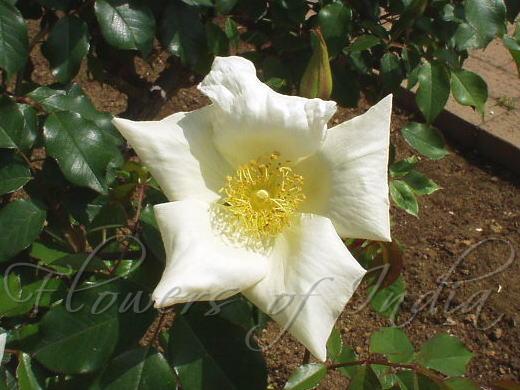|
| Manipur Wild-Tea Rose |
|

|

|
|
|
Photo: |
Botanical name: Rosa gigantea Family: Rosaceae (Rose family)
Synonyms: Rosa macrocarpa
Synonyms: Rosa macrocarpa
Manipur Wild-tea Rose, the beautiful species, was discovered by Sir George
Watt in Manipur in 1882. As the botanical name implies, this is a huge species
of rose,
infact the largest. Shade tolerant and once blooming, 5" light yellow single,
very fragrant flowers. An extensive climber, running over trees and forming
at first straight unbranched stems, as thick as the arm, younger ones with a
soft grey-brown bark and here and there short sharp hooked prickles; above
completely ramified until it envelopes the trees on which it is found. It thus
produces a truly superb effect, and, when seen from a distance, causes the
trees to appear like magnolias, with large yellow flowers. The leaves when
young have a rich brownish green tint; when older they become pale shining
green; leaflets 5-7, ovate-oblong, acuminate, shortly and sharply serrate, the
terminal one on a long petiole (1 in.), the others almost sessile; stipules
very long, linear, adnate throughout their length (except their spreading
terminal arms) and thus extending along the greater portion of the leaf-stalk.
The fleshy hip or fruit is eaten by the Nagas, becomes as large as a small
apple, and is smooth, glabrous, yellow (certainly never' red, as has been said
of the species grown in Europe) and sweetly scented.
| Identification credit: Tabish | Photographed in cultivation. |
• Is this flower misidentified? If yes,